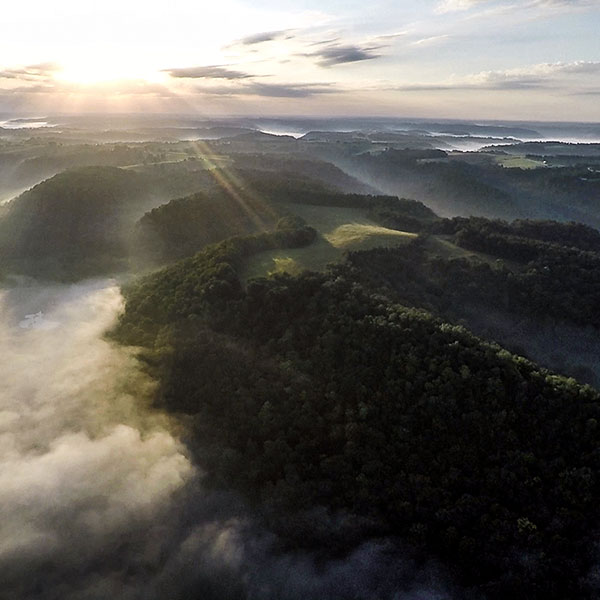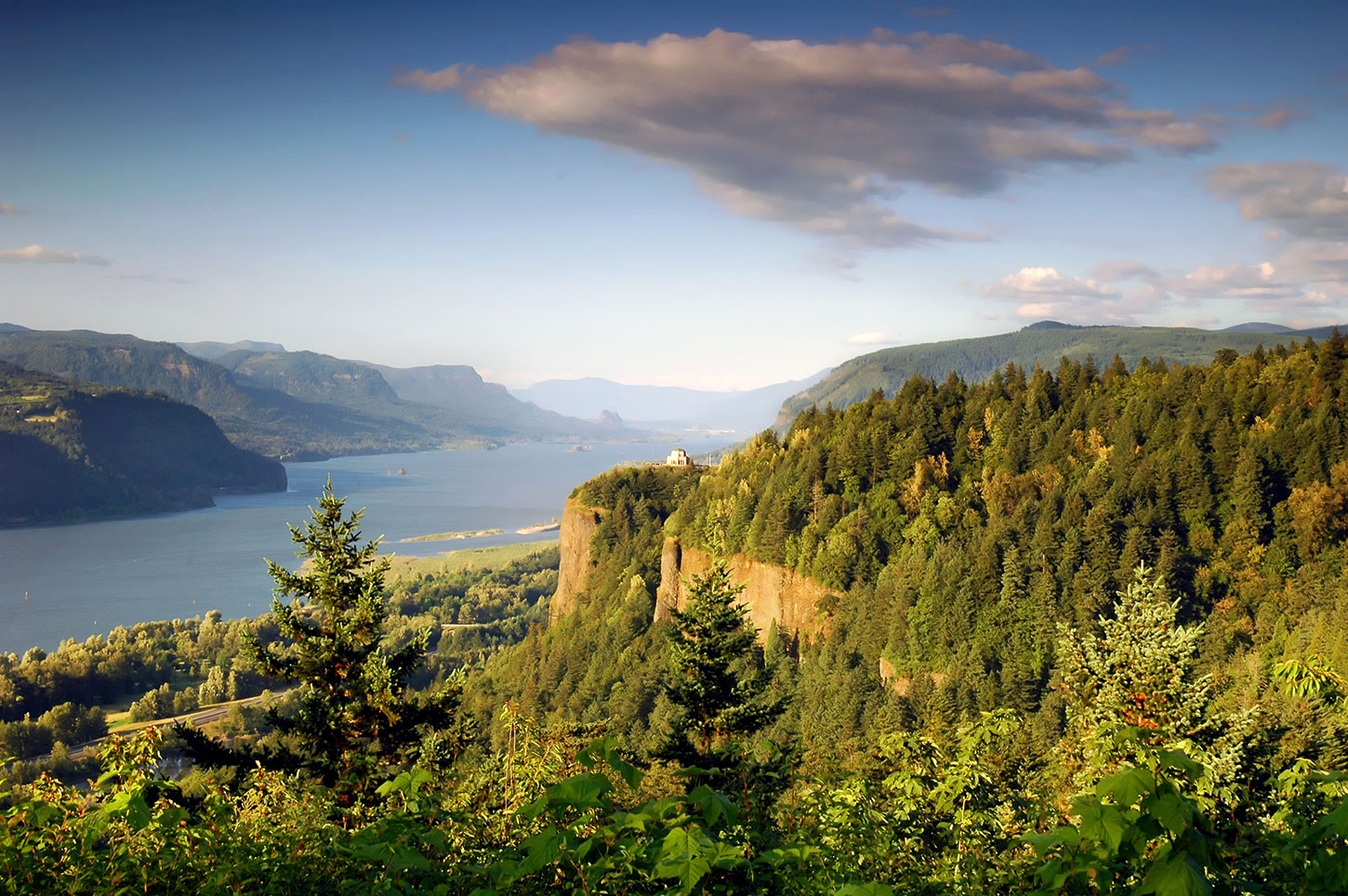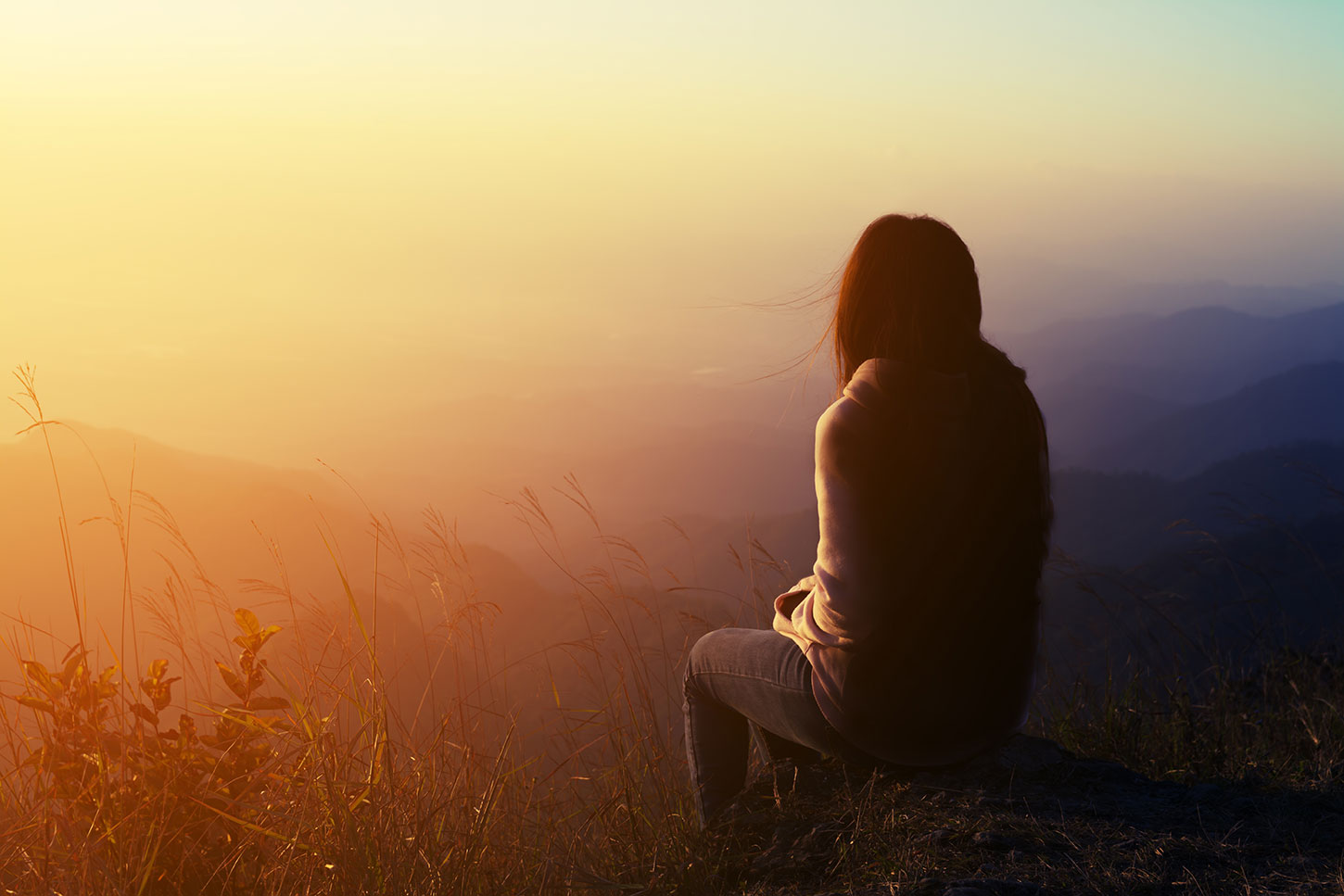Speaker 0 00:00:00 Welcome to the inaugural episode of soundscapes a terrain.org podcast.
Speaker 1 00:00:05 People often ask me, what should one person do? And my answer always is, stop being one person for God's sake. We need changes at the highest level of organization in our civilization, and that requires political action. And it will not be solved by a sudden moral awakening on the part of the federal government <laugh>. It will be resolved by the conscience of the streets, and that's where we need to be with other people. Armin arm in the streets insisting on the protection of human rights and the protection of birth rights.
Speaker 0 00:00:43 That's Kathleen Dean Moore, our guest today. In each episode we'll present original audio from terrain.org contributors. After listening to their work, you'll have a chance to get closer to each artist. Through conversation, we'll explore the animating forces that drive them. Kathleen Dean Moore is a moral philosopher, writer, and environmental activist focused on climate change. While her early writing simply celebrated the natural world, her more recent work weaves unflinching logic together with poetic wonder. In doing so, Moore helps to build the foundation for a new holistic paradigm in the climate change movement. Today, Kathleen Dean Moore will be sharing her closing remarks from the Permanent People's Tribunal, an event focused on evaluating the intersection of fracking human rights and climate change.
Speaker 1 00:01:30 Could you say something
Speaker 0 00:01:32 To introduce
Speaker 1 00:01:33 The Fracking Tribunal? The People's Permanent Tribunal is an international tribunal based on international human rights that investigates a variety of crimes or sins against humanity and the earth. The first tribunal was called by Berran Russell and Jean Paul sart to investigate the United States crimes against the people of Vietnam. After that tribunal, they decided to set it up as a permanent tribunal, and it has investigated the crimes against humanity and the crimes against the world, incher, noble and bopa. You remember that Union Carbide pesticide spill that killed so many people and now they've taken on the human and earth rights violations of fracking. It thrills me to see an international judicial body understanding that the scale of human rights violations happening in the fossil fuel industry, particularly with the great expansion that was enabled, is enabled by fracking. That they understand that ha, that has a moral amplitude that is equal to the wrongs that people do during times of war. So the tribunal is based in Rome. For this tribunal, we have gathered a international panel of judges, nine of them from a variety of different countries all across the globe. And for the first time in history, the people are assembling not by long airplane flights, but by the internet. And it follows that all of these proceedings will be, are now available online for anybody to tune into.
Speaker 0 00:03:26 You can find links to more information in this episode's
[email protected]. Here's Kathleen again with her closing remarks recorded in her backyard after a week of tribunal testimony.
Speaker 2 00:03:38 And so we come to the end of a week long tribunal on fracking climate change in human rights. What we have learned has been terrifying and empowering, infuriating and uplifting. Tedious and electrifying. Disgraceful and full of grace. What a week, right smack in the center of what I believe is the most critically important decade in the history of life on earth, where civilization will either imagine into existence a just and fruitful way forward. Or we will watch planetary and human systems fray, fragment and fall apart. Imagine. Let us stop to think about the paradoxical place where we are at the end of the tribunal. So here we are in my garden. You may hear birds, you'll probably hear motorcycles. The birds will be evening grow speaks. I don't know what the motorcycles are. We all live in earth's garden where evolution has achieved its greatest fullness of flowering.
Speaker 2 00:04:43 I'm quoting theologian Thomas Berry. It's the most lyric period in earth history. The time of thrush song and 30,000 species of orchids, microscopic sea angels with tiny wings and whales who teach each other to sing. It's a time of bird song and other astonishments that have evolved over 4 billion years. And the greatest astonishment of all the human species which has the ability to turn os stricken to the night sky and imagine its own beginnings and its own end. And yet governments in collusion with the oil and gas industry are rapidly taking steps to give away this world, this lovely world to the planet's 93 crude oil billionaires enriching them beyond the cruelest pharaohs. It's our generation that's witnessing the end of the era we evolved in. That's Thomas Berry again. My generation has done what no previous generation could do because they lack the technological power and what no future generation will be able to do because the planet will never again be so beautiful or abundant in my lifetime, because of fossil fuel driven climate change, fossil fuel enabled habitat destruction, fossil fuel driven agricultural expansion, and fossil fuel based agriculture and other assorted poisons, 39% of terrestrial wildlife is gone.
Speaker 2 00:06:16 39% of a marine wildlife is gone. 76% of freshwater wildlife gone 76%. The greatest extinctions are in the poor countries with losses of 58%, where the wealthy countries are outsourcing their environmental destruction. Let's think also of the extinction of homelands, Bangladeshi Deltas, Alaskan coastal villages, Micronesian villages sinking under the rising seas, and yet a new extreme extraction technique, hydraulic fracturing is flooding the atmosphere with greenhouse gases, 80 times more potent than carbon dioxide accelerating climate change. And I hear this always in my mind, a statement by 500 scientists led by a team from Stanford. Unless all nations take immediate action on climate change, by the time today's children are middle-aged, the life support systems of the planet will be irretrievably damaged irretrievably from the French tuve, so never to be found again. Of course, I'm afraid for the children in countries around the world, global warming has begun in Northern Africa, disastrous flooding.
Speaker 2 00:07:41 So mothers have to sleep standing up to keep their baby's heads above water. In East Africa, drought so severe that crops die on the vine and 12 million people are in terrible need of food. Children, the little ones especially susceptible to spreading infectious diseases from followed water and insect vectors, thirsty children dreaming of gardens. The planet balances here now between two possible futures. Earth. This beautiful blue marble in absolute balance trembles there with wind singing across its gardens. It could roll either way. The planet and the children head over heels. In this context, in this place, in this time, we gathered to consider fracking the new engine of the US energy revolution. A technology that has increased oil and production faster than at any time in United States history, 510,000 fracking wells producing more than half of us crude oil and two thirds of the natural gas, 13,000 new wells per year. A technology racing ahead far outpacing the legal regulations or the moral outrage that might control it. This flood of cheap energy could not have come at a worse time in planetary history.
Speaker 2 00:09:14 What happens next is largely a function of the choices we make aiming civilization toward the aspirational goals of international, human and earth rights, or surrendering to the power of the self enriching corporations or to the allure of fossil fuel powered life, the easy life, the end game. We are in terrible moral peril that we might let this world slip away. Imagine. I think of Erica Jung who wrote, in My dreams, the angel shrugged and said, if we fail this time, it will be a failure of the imagination. And then she placed the world gently in the palm of my hand.
Speaker 2 00:10:01 So let us turn to the good work of imagining. Let us imagine two futures, one in which human and earth rights are fully respected and one in which the rights are trampled by huge amounts of money invested in crimes that are dug into the very structure of the land, A tangled wellhead of fearful politicians, reckless corporations, and bewildered children. Let's look at these two possible futures. First, let's tell the story of a future without human rights enforcement. In this scenario, internationally recognized human and earth rights are simply ignored. They are. The argument goes trumped by the corporation's right to make a profit. The immediate result is that unimpeded by law or conscience well spread across the land and profits soar. This wealth creates a lively market in legislators, judges, and regulators all happy to sell their consciences and their votes for oil money. In this first story, the level of corruption is staggering enough that citizens have to prod themselves to remember that paying piles of cash for votes is called bribery, and it's a betrayal of the public trust.
Speaker 2 00:11:17 And if it weren't for Citizens United Court case, it would also be a felony. In this story, federal energy policy is quickly transferred to the hands of the fossil fuel corporations. It is now government of by and for the corporations, a corpo red talk, thuggish petro state. Now the greatest transfer of public lands and public wealth into the hands of gas and oil companies precedes a pace. As drills move into cherished indigenous land and into the once protected lands of public parks, forests, grasslands, farms, and neighborhoods, the effect on human health is immediately measurable. There are cancer zones that map exactly onto the fracking fields, which at first map exactly onto poor and minority communities. Asthma, neurological disorders, skin rashes, increase birth weight, decrease. The costs are born by the victims, never by the corporation or the state. Water and air pollution follows fracking wherever it goes.
Speaker 2 00:12:23 Abandoned wells leak. Methane chemicals leak into groundwater, chemicals leak into surface water. Pipelines leak ca, road spill and explode. Gradually the cancer zones radiate from the wells following the pipelines. Just as cancer cells follow the blood to consolidate their power, the corporations fight against the most powerful opponent they might ever face, which is knowledge. For traditional sources of knowledge, the pride of civilization come under relentless attack science, universities, free press and the courts, their weapons are silencing, scrubbed websites, demoted scientists canceled research, non-disclosure agreements, purchasing university professorships and research centers hired guns who plant false stories, bribes of every sort, deception and threats to homes and livelihoods. In this first story, activists who seek and share information are charged under new laws that allow a person who aids advises councils or conspires with someone who damages a pipeline to be charged with a felony and sentenced to 10 years in prison.
Speaker 2 00:13:40 Sometimes absent any human rights, murder is the preferred way to silence a critic. Citizens who know only one fact, their stress and their pain are ridiculed, isolated and threatened. In this story. As the methane leaks without restraint, global warming accelerates as do its effects on people's homelands, driven from the lands by drought, driven from their homes, by flood driven from their cities, by unbearable. Heat stress people are on the move with no possible place to go and no redress, there are no rights for refugees. That's the first story. And I've got to stop. I don't know how to write this. Do I use past tense because these things have already happened? Do I use the present tense because this story is unfolding today? Do I use future tents? Because without effective protection of human rights, they will continue to occur. What is the verb tense for dear God? This cannot be allowed to happen.
Speaker 2 00:14:48 So let's start over. Now we're gonna do do a different thought experiment. Now let's imagine a story of a future with full protection of human and earth rights. In this story, the government's commitment to rights serves as a powerful restraint on the fossil fuel industry's freedom to defile. At first, the fossil fuel industry does its level best to use hydraulic fracturing in as careful away as possible, developing technologies, citing wells and disposing of waste in ways that are expensive, but fully respect the rights of health to people and biota to self-determination and to the free enjoyment of property. And in this second story, let us assume also that the protection of the right to know is a high priority for government. Now I'm quoting a responsibility of every American citizen to each other is to preserve and protect our freedom by recognizing what truth is and is not what a fact is and is not.
Speaker 2 00:15:51 And begin by holding ourselves accountable to truthfulness and demand that our pursuit of America's future be fact-based. Who said that? I never thought I would be quoting Rex Tillerson, the former c o of Exxon Mobil, former Secretary of State. When his advice is followed as it is in this alternative story, much becomes clear about the fracking technology. The salient fact is that it seems to be impossible to pour poisons onto the ground, impossible to move methane, thousands of miles, impossible to release toxins into the air, to be filtered by the lungs of children and songbirds with the assurance that human earth rights will not be violated. And at this point in this story, the precautionary principle kicks in if your primary obligation is to honor the rights of life, health and so on. And if you simply do not know enough about the chemistry of toxins, the geology of wells, the fittings of the pipes to be even a little bit, sure they are safe than the rational.
Speaker 2 00:16:56 And in this imaginary setting, the legal thing to do is to not proceed. Now things are getting really expensive for the fracking industry. Delay costs a fortune. And now gas and oil costs a whole lot of money far more than solar panels and wind turbines or agricultural methane capture and tidal power. It's a powerful incentive for industry to find more reliable sources of income. And off we go into the future with a monkey off our back and the whole realm of possibility of head of us. The point is that there are two paths here. We have learned that we can see quite a way down those two different roads. It's not as though the path is obscured by fog or distance. We know the consequences of turning one way or another. What the tribunal will do is to show us which path the collective moral wisdom of the planet would have us choose. The other point I wanna make with these two stories is about the transformative power of a human rights narrative. Once you start looking at the world through the lenses of human and earth rights, you will see a quite different prospect. Here again, the tribunal is an exceptional opportunity to imagine a world very different from our own, an aspirational world, a world that calls us to our better, more discerning and more empowered selves.
Speaker 2 00:18:21 So I send thanks to the witnesses, all the courageous truth tellers, the organizers and the judges. May you find wisdom and courage to match the challenges of the time on the reeling planet that we hold in our hands. May gentle rain fall forever on green hills. May ice return to glaze the bays. May people speak without fear and dream of the future. May salmon endlessly return when sandpipers call and the way that children hum themselves to sleep in the safe and sustaining night.
Speaker 0 00:18:59 After Kathleen's eloquent and thought-provoking words, I had a chance to join her in her lovely home in Corvallis, Oregon for further conversation.
Speaker 3 00:19:08 Kathleen, in your closing remarks for the fracking tribunal, you spoke about the connection between fracking, climate change and human rights. Can you expand on what you meant by
Speaker 1 00:19:20 That? Yeah, sure. You know, I, I'm thinking about Pope Francis. He's the one who said, our work is to link social and ecological wrongs, the desperate instability of the poor and the fragility of the planet. He said, we have to integrate questions of justice in debates on the environment so we can hear both the cry of the earth and the cry of the poor, the cry of the earth and the cry of the poor. So you say what? What is he talking about? Well consider the food supply in the ocean. When you add carbon dioxide to water, you increase its acidity and that pits the tissue thin membranes of the crill and the phytoplankton that are the broad foundation of the food pyramid. So one out of seven people on earth depend on food from the sea. And when that food pyramid comes tumbling down, what are they going to eat?
Speaker 1 00:20:10 And what happens then to the right to life? The primary, primary human right or consider fresh water. 68% of the planet's fresh water is stored in the ice caps and glaciers the ice on the Tibetan plateau waters 10 major river systems that provide the irrigation and the power in the drinking water for over 1.3 billion people. That's nearly 20% of the world's population. And when they've melted, the reliable water's gone and floods and droughts will take their place. And what will the people drink then? How far will the women walk to water? And what does that make of the right to security a person or agriculture? The average global temperatures increase as they will to 1.5 or two. By 2040, the African farmers will lose up to 80% of their crop land. Think about that. 80% of the crop land in Africa that's used to grow maze and millet and sorghum. The number of malnourished children in Africa then is gonna double to 52 million. And what will the people do then? I mean, what would you do if your children were starving? And it's not that people will suffer, not just that they will suffer unjustly because they're gonna pay the penalties for other people's crimes.
Speaker 3 00:21:30 And this tribunal takes the important step of not just focusing on human rights in the climate change context, but also bringing in the rights of the earth natural rights.
Speaker 1 00:21:42 This is a great step forward. Do you remember that although Leopold Sid, and I won't be able to quote this exactly, but he said that the measure of humanity's moral progress is the expansion of the sphere of their moral concern. And that as we become more fully developed as moral creatures, we realize that it's not just human beings who are rights bearers, but the rivers and the birds and the trees and the landscapes in the deserts. And so we need to acknowledge them and their rights as even as we call for our own rights to be protected. The law of Pima now in Ecuador, that I am a great admirer of the notion that the rivers have rights. So this notion that we need to take into account the rights of all living beings, all creatures who all have this great urgency towards life, they all have their thriving by that very fact deserve to have their rights protected.
Speaker 3 00:22:41 Mahat Maga said something similar about you can judge the progress of a society by how it treats the most powerless among it
Speaker 1 00:22:49 There. That's nice. Boy, what judgment is called down upon the face of humanity. Now if you think about that,
Speaker 3 00:22:56 You used this expression that I loved in your closing remarks, what was it about the cosmic
Speaker 1 00:23:00 Buyout? Right? It's a phrase that comes from, uh, Robert F. Kennedy Jr. He said that what we're doing now with climate change is like a gigantic going out of business sale. And not just climate change, but the earth extraction extraction of all the riches of the earth. We are pulling the riches out and we are burning them up in our cars, in our furnaces, in our factories. It's as if we didn't care that we will run out as if we didn't understand that you can't have infinite growth and infinite extraction on a finite planet. And so there will come a time when it is gone and all that there will be are the tattered picked over remains of the richness of the earth.
Speaker 3 00:23:40 And it's not even just the earth that's going out of business, it's life that's going out of business, right? It's the shop doors on humanity that will be closed when this sale is over.
Speaker 1 00:23:53 I was just reading an article that I thought was very interesting. It was a debate as to whether humankind would go extinct or whether civilizations would simply collapse, but an extraordinary place we are in human history that would, we would be even entertaining that question. Even inviting it into dinner, sitting with it. Unbelievable. What do you hope for something different from either of those alternatives? I would say mm-hmm <affirmative>, I'm reminded always of the statement by 500 scientists led by a team from Stanford that I mentioned in my talk saying that unless all nations take immediate action on climate change, by the time today's children are middle-aged, the life supporting systems of the planet will be irretrievably damaged. And I keep coming back to the introductory clause. That clause sticks in my mind. Unless all nations take immediate action on climate change, that is a call to action. That is a call to all hands on deck. That is our mission. That is our sacred calling.
Speaker 0 00:24:58 Kathleen, you are many things including a formally trained philosopher. How did that come about and is it relevant to your climate activism?
Speaker 1 00:25:07 I wanted to do philosophy that mattered. And so my first proposal for a dissertation project was to rethink reconceptualize water rights. I knew they weren't working. I knew that was a philosopher's work. And so my job was going to be to think it through again and make recommendations for how it might be better. I went to my professor with that plan and he said, that's not philosophy. Philosophy is about ideas. So I said, okay, where can I do philosophy that it really will matter? And so I looked all around and it seemed to me that law was a place where philosophy really did shape, really did shape the decisions that were made. So I decided that that my next project was going to be about mercy and the law, the relationship between justice and mercy and law. Interesting. Because that's a philosophical question. And I could get it by the committee and then I could do work that really mattered.
Speaker 1 00:25:59 Mm-hmm. <affirmative>. So I decided if I'm gonna do that, I'm gonna have to get some training in jurisprudence. So my, my interest in law is, is piggybacked on my interest in doing work that mattered. And so that's the first, my dissertation and my first book were about pardons, presidential pardoning power. And then when I came here, there was no program in that. So that fit me in very nicely cuz I could teach philosophy of law, I could teach legal reasoning, all those kind of cool things. So they were very pragmatic decisions, all trying to get the philosophy to count. But then it was clear to me it, it wasn't about pardons, it was about the damage to the environment That's awful. Sins against the world. Mm-hmm. <affirmative>. So I switched over
Speaker 3 00:26:39 For people listening that wanna get involved and have a role in being part of a nation that does take action. Do you have any advice?
Speaker 1 00:26:49 People often ask me, what should one person do? And my answer always is, stop being one person for God's sake. There was this myth that we could solve the planet's problems by consuming better, by changing our light bulbs, by buying a Prius, by living in some different way, by composting. But it's very clear now that what is needed is systematic change. Systemic change. We need changes at the highest level of organization in our civilization. And that requires, I believe, political action. And it will not be solved by a sudden moral awakening on the part of the federal government. It will be resolved by the conscience of the streets. And that's where we need to be with other people arm in arm in the streets, insisting on the protection of human rights and the protection of earth rights. If I were to, to design a society where there would be no protest, I would make us as busy as we are.
Speaker 0 00:27:55 Why do you say that
Speaker 1 00:27:57 61% of the American population is concerned or very concerned about climate change? That's our audience. To lift them up, to give them courage, to help them know the words to the song.
Speaker 3 00:28:08 If it's a democracy, that should be enough.
Speaker 1 00:28:10 It's way more than enough. People say, why do you preach to the choir? And I say, there's three really good reasons. One is they're tired and they need somebody to lift them up. Another is they don't know the words to the song. And so if you can give them words, if you can help them express how they're feeling, that's a really service. And the third is that they're hypocrites, <laugh>, <laugh>. They're sitting there singing the song without making any change in their lives. That's where we should concentrate our effort
Speaker 3 00:28:38 And change in their lives in a system way. Right. I mean, you've talked before. You're not talking about taking showers and changing the light bulbs. You're talking about mobilizing.
Speaker 1 00:28:47 That's right. Speaking out, becoming part of the conscience of the street, becoming part of organizations that are working very effectively to draw what they call on the west coast, the thin green line, to keep all those fuels from crossing. Mm-hmm. <affirmative> into the ocean.
Speaker 3 00:29:03 People interested in hearing more from the fracking Tribunal can find it online.
Speaker 1 00:29:08 They can tribunal on fracking.org. Wonderful. They're going to post all of the testimony, the witnesses, the arguments. It's an extraordinary listening experience. It's quite an education.
Speaker 0 00:29:19 Thanks to Kathleen for that educational conversation and for all the hard work you do for our planet. A trove of this uniquely insightful work can be
[email protected], links to the full permanent people's tribunal testimony and judge statements, as well as other supplemental material from Kathleen can also be
[email protected] under this episode's description. Thanks for listening and for being a part of our community. We'd love to hear from you and hope you join us for another episode of Soundscapes. Until then, here's to Kathleen's consciousness of the streets.





